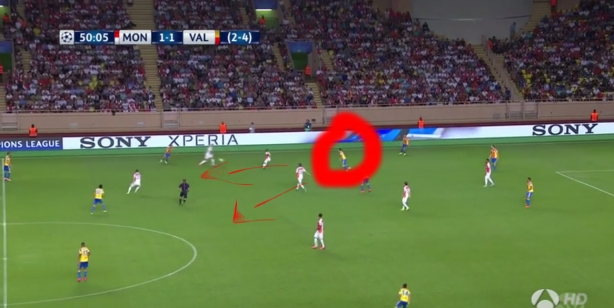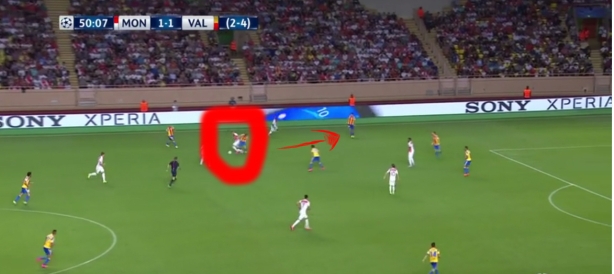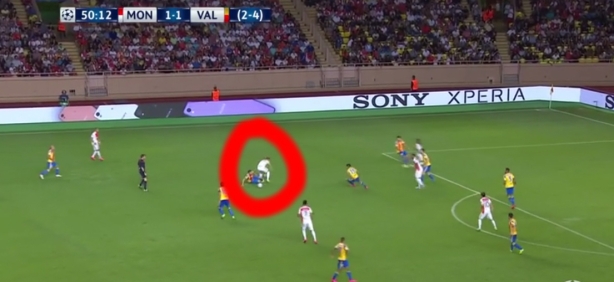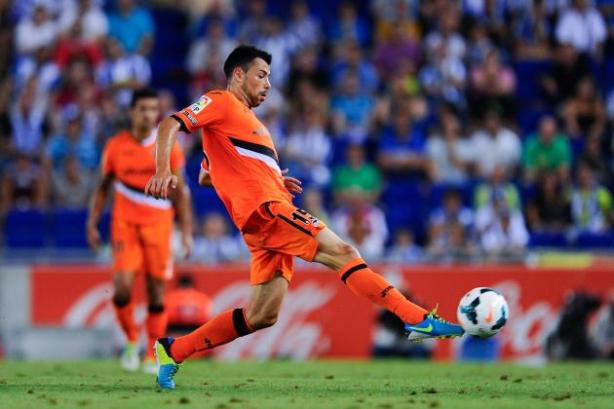As Valencia legend David Albelda departed in 2013, it became apparent that Los Che were in dire need of a new anchor in midfield. Despite his influence over the years, Albelda regressed heavily in his final two seasons and struggled to keep up with the pace of the game; errors seeped in due to pressure, and thus the search for a new defensive-midfielder began.
Valencia swept in for Javi Fuego, 29 at the time, on a free transfer. Fuego had spent three excellent years at Rayo Vallecano, deployed as a box-to-box midfielder in Paco Jemez’s attacking system. Yet, when he was asked to sit and break up play, his true qualities shone. He allowed Roberto Trashorras to take a few more steps into the final third, he covered for when his wing-backs went on marauding runs and he cast a protective net over his defence that, ultimately, kept Rayo from being whitewashed game after game. With no contract renewal signed, Fuego was given his chance to seek pastures green – and, thus, Valencia came knocking.
Fuego struggled to fit in immediately, viewed as too aggressive to anchor a Valencia midfield that was often susceptible to being overrun. But he was able to give Dani Parejo freedom to dictate a game, and that helped the now Valencia captain reach the level that everyone had expected of him as a kid. That’s the thing with Fuego: not only will he protect the midfield, he will let the individuals within it express themselves and thus become better footballers. His rise from being a perceived liability to one of the most important cogs of Valencia’s ever-changing midfield has been unsurprising to most.
With the abundance of technical ability in Valencia’s current midfield options (Parejo, Enzo Perez, André Gomes and Rodrigo De Paul), Fuego has to operate as the key balancing act. He is the water carrier of the side, ensuring that things are safe for others to pile on forward and exert their various influences. Far from aesthetically pleasing, the Spanish defensive-midfielder racks up tackles and interceptions like no other. Take him out of the Valencia midfield and they crumble both due to opposition pressure and systematic changes from Nuno Espirito Santo to adapt to Fuego’s absence. This often involves Perez operating as a ball-winner, but his job is far less successful than what the Spaniard is capable of. Los Che look disjointed and easy to pierce through for opposition players. The defence becomes vulnerable, the full-backs lose their precious cover. Possession for Valencia then becomes a game of who can play the riskiest pass out of impatience to create goals. Fuego, on the other hand, is far from technically gifted but not entirely deficient with the ball at his feet; his safe passing is a necessity rather than a tool that handicaps Valencia.
Fuego was key in Valencia’s Champions League qualifiers, playing a crucial role in repelling Monaco attacks and alleviating pressure beset upon his defence. He is perfect for away games, capable of making tactical fouls to slow the game down yet always having the discipline to wait for the perfect opportunity to tackle (pictured below). In home games, Fuego can operate as the anchor who allows everyone to have fun. In away games, his importance multiplies by ten. He leads by example, barking orders to organise his midfield and ensure that shape does not break off.

Covering for his full-back. Could do the “normal” thing of slotting back in midfield, but he opts to stand off that position and wait for Monaco’s play to approach him as he predicts.

As he predicted, play comes his way and he applies pressure on the opposition player to win back the ball. But once he sees that the player has an open man to pass to, he retreats into the previous position to, again, await a run down his radius.

It’s here where he finally commits, once the opportunity arises. He could have flown in twice in the previous seconds, but he waits. With that precise tackle, he wins back possession and Valencia embark on a dangerous counter. He is crucial to their system in Europe especially.
The issue with Fuego and Valencia is that there is no true alternative to him. Signed in the summer was Danilo Barbosa – on loan from Sporting Braga – who arrived with a lot of hype and praise surrounding his game. At just 19-years of age, there is an almost 13-year gap between both him and Fuego. Danilo is far too inexperienced, but undoubtedly talented and enthusiastic, while Fuego will soon become susceptible to injuries like most combative players in their 30s do. It is a clear concern for Valencia, who seem a tad too engrossed in employing flashy players for the midfield rather than someone who can become the heir to Fuego in the next 2-3 years; as good as he is, there will come a time when this notion will have to be at the very least pondered on.
As of now, age is far from an issue in Fuego’s game though. He plays with an enthusiasm, concentration and energy that can be found in any player at his physical peak. This energy comes natural to him due to his previous ventures in the box-to-box role; he does not tire late in the game like Albelda did in his final years. If not for his age, the Spaniard would be one of the most sought after defensive-midfielders in Europe. Luckily for Valencia, his age repels many from attempting to pluck him away. Yet it is almost bewildering how sides with lesser-quality always enquire for Fuego – something not reflective of his quality; Valencia swat the enquiries away, but it begs the question: how understated is Fuego’s quality?
Ultimately, he is one of the best holding midfielders in Spain and vastly underrated not only in the country, but in Europe too. There’s a generation of veteran midfielders like him in La Liga that are still performing to a high level: Bruno Soriano, Tiago, Trashorras etc. They all play at a high level and retain an intriguing youthfulness to their game. The one thing in common between all of these names? They’re unequivocally important for their sides. Bruno leads and anchors, Tiago bursts from box to box breaking up play and initiating attacks while Trashorras is the playmaker – the man who dictates play and tempo.
If Peter Lim’s relationship with Jorge Mendes is to continue, then perhaps the heir to Fuego will be found in someone like William Carvalho who has been linked to the club already. Valencia cannot afford to have another Albelda situation on their hands where they neglect the age of an important player until he becomes physically incapable to carry out his role – and then ensues a scramble for names and numbers.
Fuego’s importance to this Valencia side is both impressive and scary. One injury and Los Che’s midfield snaps in half, but without injuries it looks like one of the most perfectly balanced midfields in La Liga.
